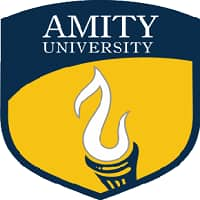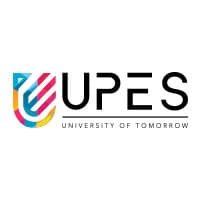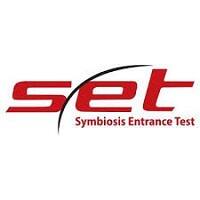Jain University B.Tech Admissions 2025
100% Placement Record | Highest CTC 54 LPA | NAAC A++ Accredited | Ranked #65 in India by NIRF Ranking 2024 | JEE & JET Scores Accepted
BTech in Blockchain is a newly introduced specialisation of BTech and it can be completed in four years. Blockchain is a distributed and secure database technology used to store transactions in blocks. It is the foundational technology of cryptocurrency. Students with a Science background in 10+2 can apply for the B Tech Blockchain course.
The increasing popularity of cryptocurrencies like Bitcoin and Ethereum has led to a growing demand for professionals with deep knowledge of blockchain technology. After completing the BTech in Blockchain Technology course, graduates can pursue different careers but the main among them is Blockchain Developer.
While around 40 colleges in India offer blockchain courses at the undergraduate level, only a few provide dedicated BTech in Blockchain programmes. Most institutions integrate blockchain technology with other specialisations like IoT, FinTech, CSE, Distributed Computing, and Cyber Security. The total B Tech blockchain technology fees range between Rs. 1.5 lakhs to Rs. 15.0 lakhs.
100% Placement Record | Highest CTC 54 LPA | NAAC A++ Accredited | Ranked #65 in India by NIRF Ranking 2024 | JEE & JET Scores Accepted
Apply for B.E at East Point College of Engineering and Technology | Use Code : Careers360 & Avail 50% Off on Application Forms | Last Date: 19th Apr’25
Particulars | Values |
|---|---|
Course Name | BTech Blockchain |
Course Level | Undergraduate |
BTech Blockchain Course Duration | 4 years |
BTech in Blockchain Eligibility Criteria | 10+2 with PCM |
B Tech Blockchain Admission Process | Entrance Exam/Direct Admission |
BTech in Blockchain Entrance Exam | JEE Main, MHT-CET, KCET, CUET UG, COMEDK UGET, GUJCET, SRMJEEE |
BTech Blockchain Course Fees | Rs. 1.5 lakhs to Rs. 15.0 lakhs |
Job Profiles | Blockchain Developer, Blockchain Architect, Researcher, Software Developer, Academician |
Average Salary | Rs. 8.0 LPA |
Top Recruiters | Accenture, Amazon, IBM, Infuy, Cognizant, Coinbase, Cubix, BlockFi |
If candidates want to enrol in the B Tech Blockchain Technology course, they need to fulfil the eligibility criteria first. Listed below are the requirements sought after by colleges.
| Particulars | BTech Blockchain Eligibility Criteria |
|---|---|
Eligibility criteria | 10+2 in Science stream from a recognised board in India |
Minimum marks | 50 per cent marks in |
Subjects required | |
Entrance Exam | JEE Main, JEE Advanced, BITSAT, SRMJEE, VITEEE, WBJEE, KEAM Exam, MHT CET |
The admission procedure for any course is decided by the governing body of the provider college. It is mostly the same for each college, however, this is not always true. Listed below are the steps that candidates should take for BTech in blockchain technology admission.
Around 15 exams at various levels are facilitated in India to offer BTech in Blockchain Technology admission. Some of them are compiled in the table below.
Exam Name | Conducting Body | Exam Schedule |
|---|---|---|
NTA | ||
Karnataka Examinations Authority | ||
Consortium of Medical Engineering and Dental Colleges of Karnataka | ||
GSHSEB | ||
GGSIU | ||
State Common Entrance Test Cell - Maharashtra State | ||
NTA | ||
SRM University |
The first two years of the B Tech Blockchain course are very similar to BTech CSE. From the third year onwards, students learn blockchain, big data analytics, AI, ML, and other technical concepts. In the table below, we have compiled the B Tech blockchain syllabus taught at SunRise University.
Semester 1 | Semester 2 |
Engineering Mathematics-I | Engineering Mathematics-II |
Engineering Physics | Engineering Chemistry |
Communication Skills | Human Values |
Programming for Problem-Solving | Basic Mechanical Engineering |
Basic Electrical Engineering | Basic Civil Engineering |
Labs | Labs |
Semester 3 | Semester 4 |
Mathematics-III (Differential Calculus) | Discrete Mathematics |
Data Structure & Algorithms | Operating System |
Analog Electronic Circuits | Design & Analysis of Algorithms |
Digital Electronics | Computer Organization & Architecture |
Organizational Behavior | Signals & System |
Values and Ethics in Profession | Management-I |
Practicals & Sessionals | Practicals & Sessionals |
Semester 5 | Semester 6 |
Formal Language & Automata Theory | Blockchain Technology |
Database Management System | Soft Computing |
Object Oriented Programming Using Java | AI & Machine Learning |
Software Engineering | Big Data Analytics |
Embedded Systems | Numerical Methods & Operation Research |
AI & Machine Learning | Operations Research |
Practicals & Sessionals | Practicals & Sessionals |
Semester 7 | Semester 8 |
Natural Language Processing | Digital Forensics |
Digital Forensics | Deep Learning |
Neural Network and Application | Data Mining & Data WareHousing |
ESP & SDP | ESP & SDP - |
Internship/Industrial Training/Project | Internship/Industrial Training/Project |
Candidates who want to pursue the BTech Blockchain Technology must keep in mind the fee structure of the course. The fee structure includes tuition fees, admission fees, facilities charges like library fees, and other miscellaneous charges. On average, candidates can complete their BTech in Blockchain course with total fees ranging anywhere between Rs. 1.5 lakhs to Rs. 13.0 lakhs.
As per the Grand View Research, the global blockchain technology market was valued at USD 17.46 billion in 2023. It is expected to grow at a CAGR of 87.7 per cent from 2023 to 2030. This statistics data is enough to tell us about the scope and demand of professionals with blockchain technology knowledge.
Finance, healthcare, and supply chain management are the major sectors that are expected to employ blockchain technology on a large scale hence why increasing in job opportunities. Candidates with a BTech in Blockchain can join either private industries as mentioned above or even pursue a career in the public sector.
Graduates can opt for various related job profiles both in India and abroad. Listed below are some popular job roles available for graduates.
Blockchain Developer: Blockchain Developers specialise in designing, developing, and maintaining blockchain applications and smart contracts. They need strong programming skills and an understanding of blockchain protocols and platforms like Ethereum or Hyperledger.
Blockchain Architect: Blockchain Architects focus on planning and building blockchain systems and solutions. This role involves designing the architecture of blockchain networks to ensure scalability, security, and efficiency.
Researcher: Researchers engage in exploring and developing new blockchain technologies and applications. They contribute to academic research or work on innovative projects within the industry.
Software Developer: Software Developers with a focus on blockchain technology develop applications that run on blockchain platforms. They integrate blockchain solutions with existing systems and technologies.
Academician: Academician in blockchain focuses on researching, teaching, and developing new theories and applications related to blockchain technology. They contribute to advancing knowledge in the field through publications, conferences, and curriculum development.
Accorded Institution of Eminence by MoE, Govt. of India | NAAC A++ Grade | Ranked #4 India by NIRF 2024 | 200+ Recruiters
Integrated M.Tech admissions open @ VIT Bhopal University | Highest CTC 52 LPA | Application Closing Soon | Apply now
BTech in Blockchain Technology course offers specialised knowledge in this rapidly growing field. Students gain expertise in blockchain fundamentals, cryptography, and smart contracts. Graduates can pursue career opportunities in sectors like finance, supply chain management, and cybersecurity, where blockchain technology is increasingly being adopted.
BTech in Blockchain enhances the employability chance of students as its curriculum provides project-based learning to students. They are well-prepared for roles such as blockchain developers, architects, and consultants. As blockchain continues to evolve and integrate into various industries, a solid foundation in this technology provides a competitive edge in the job market.
Students often want to know the salary they can expect after graduation. The following table presents the salaries for various BTech Blockchain job roles.
Job Profiles | Average Salary |
|---|---|
Blockchain Developer | Rs. 9.6 LPA |
Blockchain Architect | Rs. 22.0 LPA |
Researcher | Rs. 7.7 LPA |
Software Developer | Rs. 8.4 LPA |
Academician | Rs. 15.7 LPA |
Source: Ambition Box
Around 30 colleges in India offer BTech Blockchain courses and all of them are private. Here, we have listed the top BTech in Blockchain colleges along with their total fees.
Colleges | Total Fees |
|---|---|
- | |
Rs. 9.28 lakhs | |
- | |
Rs. 3.61 lakhs | |
Rs. 6.43 lakhs | |
Rs. 7.80 lakhs | |
Rs. 15.0 lakhs | |
Rs. 6.67 lakhs | |
Rs. 6.51 lakhs | |
Rs. 7.0 lakhs |
Please note that some of the providers mentioned above do not offer dedicated BTech Blockchain courses. Instead, they integrate blockchain with other specialisations, such as BTech CSE with Blockchain and IoT, BTech CSE with a specialisation in Blockchain, BTech Blockchain Technology and Information Security, and BTech Distributed Computing with Blockchain.
Graduates with a BTech in Blockchain are expected to earn around Rs. 9.5 LPA, as per the Ambition Box.
Yes, blockchain technology is in demand and continues to be a hot topic across various industries. It can enhance security, transparency, and efficiency in processes and has drawn interest from sectors such as finance, supply chain management, healthcare, and even government.
The fee structure depends on the type of course you are enrolled in. For instance, the average BTech Blockchain fee ranges between Rs. 1.5 lakhs to Rs. 15.0 lakhs. The fees will be different for other courses depending on their providers.
B Tech in Blockchain is a newly introduced specialisation of engineering. It is of a four-year duration and covers subjects like Blockchain Technology, Soft Computing, Digital Forensics, Deep Learning, and Automata Theory.
Candidates can pursue courses like BTech in Computer Engineering, BTech in Computer Science, or BTech in Blockchain to become a blockchain developer.
Application Date:03 September,2024 - 16 April,2025
Application Date:14 November,2024 - 25 April,2025
Hello,
I can keep you posted about the date of the upcoming BE/BTech exams, and as and when necessary, update you on other information; however, if you seek continuous, up-to-the-minute information relevant to your engineering exams, then it would be a good option to subscribe to services provided by Careers360. It provides broad coverage in respect of entrance exams regarding college admissions; this is well-come for notification, registration date, the final application form submission dates along with a schedule and important dates pertaining to several tests including those for Engineering including JEE Main and Advance, BITSAT, VITEEE, and those of their state versions that include MHT CET as well as AP EAMCET.
I can assist you with specific exam overviews, syllabus, and preparation strategies whenever you need it.
Hello there,
IIT Delhi offers a variety of B.Tech and dual degree programs across multiple engineering disciplines. As of the latest information, here are the undergraduate programs available at IIT Delhi:
1. B.Tech Programs:
- Computer Science and Engineering
- Electrical Engineering
- Mechanical Engineering
- Civil Engineering
- Chemical Engineering
- Engineering Physics
- Production and Industrial Engineering
- Textile Technology
- Biochemical Engineering and Biotechnology
- Mathematics and Computing (B.Tech and M.Tech Dual Degree)
- Engineering and Computational Mechanics
2. Dual Degree Programs (B.Tech + M.Tech):
- Biochemical Engineering and Biotechnology
- Chemical Engineering
- Electrical Engineering (Power and Automation)
These offerings can change, so it's always good to check the latest information on the official IIT Delhi website or the Joint Seat Allocation Authority (JoSAA) portal.
Hello there,
IIT Kanpur offers a variety of B.Tech and dual degree programs across different departments. As of the latest information available, the following B.Tech and dual degree (B.Tech-M.Tech) programs are offered at IIT Kanpur:
1. Aerospace Engineering (AE)
2. Biological Sciences and Bioengineering (BSBE)
3. Chemical Engineering (CHE)
4. Civil Engineering (CE)
5. Computer Science and Engineering (CSE)
6. Electrical Engineering (EE)
7. Materials Science and Engineering (MSE)
8. Mechanical Engineering (ME)
Additionally, IIT Kanpur offers dual degree programs (B.Tech-M.Tech) in some of these disciplines, allowing students to earn both bachelor's and master's degrees.
For the most accurate and up-to-date information, you can check IIT Kanpur's official website or the Joint Seat Allocation Authority (JoSAA) counseling brochure.
Hi there,
hope you are doing fine
Yes, you can apply for any M.tech colleges in computer science field through GATE exams, some of the requirement you need to see that you must have Under graduate degree, Pursuing BE doesn't affect your eligibility, You may check some of the specific eligibility criteria of the colleges like IIT's in which you are interested, as some of them may have additional requirements.
With an SC category rank of 41,715 and a CRL rank of 570,173 in JEE Main, getting into NITs or top-tier IITs for B.E./B.Tech may be challenging. However, you might find options in state engineering colleges in Maharashtra, as they often have seats reserved for SC candidates with lower cutoff requirements compared to NITs. Look into state-level entrance options like MHT CET or other reserved category seats in Maharashtra’s government and private engineering colleges for better chances.

Among Top 30 National Universities for Engineering (NIRF 2024) | 30+ Specializations | AI Powered Learning & State-of-the-Art Facilities

Ranked #42 among Engineering colleges in India by NIRF | Highest CTC 50 LPA , 100% Placements | Last Date to Apply: 28th April

Gateway for admissions to Engineering courses @ Symbiosis | NAAC A++ Grade | Among top 31 in India (NIRF 2024)
Ranked #1 Among all Private Indian Universities in QS Asia Rankings 2025 | Scholarships worth 210 CR
India's Largest University | NAAC A++ Accredited | 100% Placement Record | Highest Package Offered : 2.5 Cr PA | Application End Date: 15th Apr'25
A Hero Group Initiative | Up to 100% Scholarships | Highest CTC 32.99 LPA | Average CTC 8.45 LPA | Accepts JEE Score | Last Date: 19th Apr'25